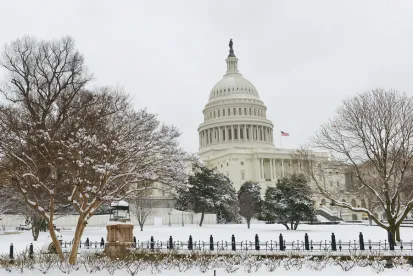On December 8, the U.S. House of Representatives passed the Uyghur Forced Labor Prevention Act nearly unanimously. The House bill would create a “rebuttable presumption” that all goods from the Xinjiang Uyghur Autonomous Region (XUAR) were made with forced labor. The House version of the Uyghur Forced Labor Prevention Act also would require importers to affirmatively demonstrate that any goods imported from the XUAR were not made with forced labor. As a practical matter, this means that U.S. Customs and Border Protection (CBP) would be required to block shipments from XUAR, absent documentary proof from the importer of record that the shipped goods are free from forced labor. The House bill also requires CBP to report every shipment that it does allow into the U.S., to Congress and to the public. The House bill does not contain any provision to allow shipments that are currently en route from XUAR into the United States, and it does not provide any window for companies to update their supply chain tracing protocols.
The House bill also contains a provision requiring the president to identify and sanction individuals and entities that facilitate forced labor. The House bill further requires securities issuers that file with the U.S. Securities Exchange Commission to disclose whether they knowingly (1) engaged in activities with an entity helping to create mass surveillance systems in Xinjiang, (2) engaged in activities with an entity running or building detention facilities for Muslim minority groups in Xinjiang, or (3) conducted a transaction with any person sanctioned for the detention or abuse of Uyghurs or other Muslim minority groups in Xinjiang. Under the House bill, the president is required to determine whether to investigate and pursue sanctions or criminal charges.
The Senate passed a similar measure last year. Given the overwhelming bipartisan political support for the measure and the Biden administration’s increasing diplomatic pressure on China, including the recent announcement of a diplomatic boycott of the 2022 Olympics, there is a high likelihood that Congress will pass and the president will sign some version of this bill. The current and previous administrations have placed sanctions on companies operating in XUAR (discussed in this post in Foley’s Renewable Energy Outlook blog), and the Biden administration has already taken executive action to prevent imports of silica and silica-based products manufactured by Hoshine Silicon Industry Co. Ltd. into the United States (discussed in this post in Foley’s Renewable Energy Outlook, Dashboard Insights, and Manufacturing Industry Advisor blogs).
U.S. companies that source products from XUAR should review their supply contracts for change in law, force majeure, and other compliance provisions. Companies should also review their commercial project contracts to determine the impact of supply chain delays and determine compliance with relevant notice provisions. Companies importing products of any kind from XUAR should evaluate whether they have sufficient tracing information to ensure compliance with a complete import ban. Companies must also review their China-based contracts for compliance with Chinese law and familiarize themselves with any Chinese countermeasures. If this bill becomes law, CBP will monitor for potential transshipment attempts by Chinese companies. If your company acts as an importer of record, it will be held responsible for any such attempt, underscoring the importance of full-spectrum supply chain due diligence.






 />i
/>i

